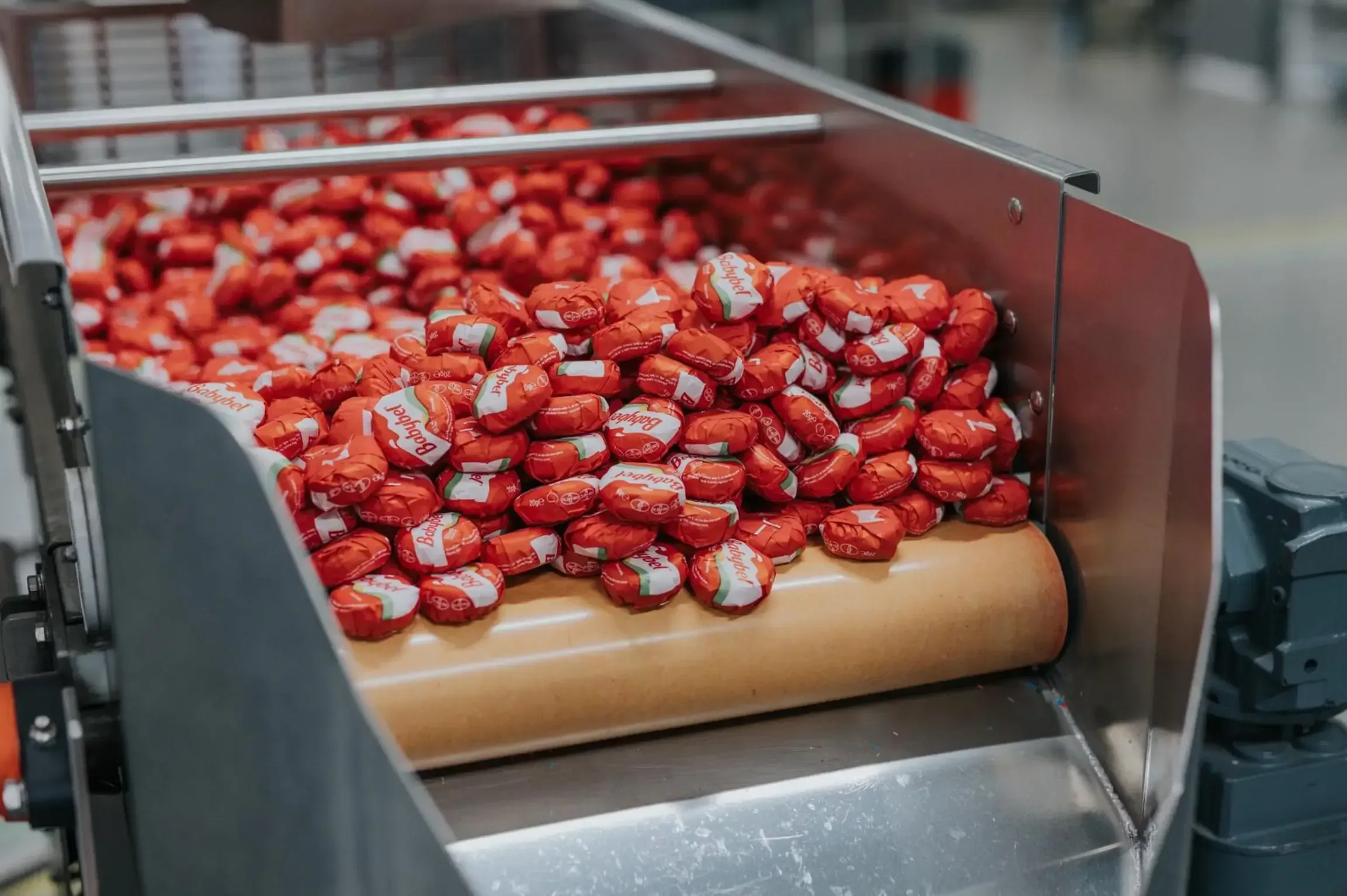Bel begins global transition to paper packaging for Babybel

Sustainability
Bel has started the international rollout of paper-based packaging for Babybel, following several years of research and development aimed at reducing plastic use across the brand’s portfolio.
Since 2020, Babybel has used a bio-based, home-compostable cellophane wrap. Moving from this material to paper has required significant technical adaptation, as the outer packaging plays an essential role in product protection, shelf life and microbiological safety. The brand’s distinctive red wax coating will remain unchanged due to its role in maintaining product integrity.

According to the company, the new paper solution has undergone extensive testing, including production-line trials and real-world validation, to ensure it can meet the operational demands of large-scale manufacturing at all Babybel sites.
The rollout has now started in the United Kingdom. Markets including the United States, Canada and Northern Europe are expected to adopt the new format during 2026, with a wider transition planned across all 50 global markets from 2027. At full implementation, all Mini Babybel products will use certified paper sourced from responsibly managed forests.
Béatrice de Noray, Executive Vice President in charge of Growth at the Bel Group, said: Transforming our production and consumption models is one of the greatest challenges of our time. At Bel, we choose to put innovation at the service of more responsible and accessible food for all. This ambition sits at the heart of our growth strategy and guides the evolution of our brands, our industrial processes, and our packaging. Babybel® has been part of families’ lives for more than 70 years. Its uniqueness lies in both its universal appeal and its ability to evolve with changing uses, food cultures, and societal expectations. Today, its packaging enters a new chapter, one that strengthens what makes Babybel® iconic: a practical, convivial, and instantly recognizable portion. By advancing its packaging, we are taking a structural step in our journey, embodying the combination of responsibility and performance that defines Bel’s DNA.
Delphine Chatelin, Director of RID at the Bel Group, said: Transitioning Babybel® to paper packaging is a true technical and industrial challenge. It is not simply about replacing one material with another, it requires rethinking the entire protection system to ensure product quality and safety from production to consumption. Our objective is to offer consumers the same iconic and enjoyable experience while meeting their expectations for sustainability and convenience, with packaging that is environmentally responsible and perfectly adapted to the product’s lifecycle.
Linda Neu, Babybel®'s Global Director, concludes: With more than two billion portions sold every year worldwide, this evolution has a concrete global impact. Moving to recyclable paper packaging is a decisive milestone in Babybel®’s sustainable transformation. It reflects our commitment to innovate without compromising on quality or food safety, while accelerating the reduction of our environmental footprint.
Babybel’s shift is part of Bel Group’s broader strategy to reduce plastic at source. Other brands within the group are also progressing packaging changes: Kiri is continuing development work on paper alternatives, while The Laughing Cow and Materne compotes are taking part in bulk-format trials supported by dispensing technology currently being tested in selected stores.
Related News
-
Sustainability
Cadbury to trial 300,000 paper-based Heroes tubs in Tesco stores across the UK
-
Sustainability
Walkers Chocolates introduces recyclable paper wrapper
-
Sustainability
M&S switches to paper packaging for men’s essentials range
-
Business
Swedish confectioner adopts paper packaging for nut-based spread
-
Sustainability
Orkla Suomi trials paper-based packaging for Panda Milk chocolate




